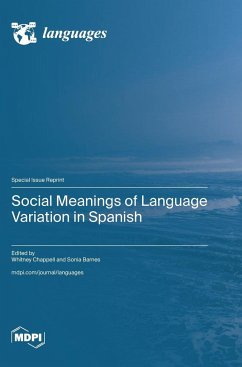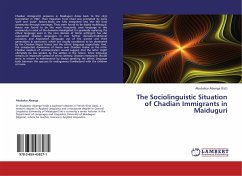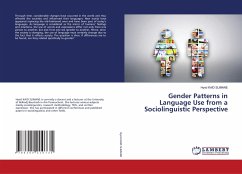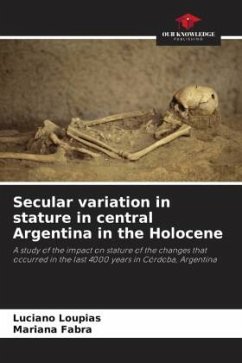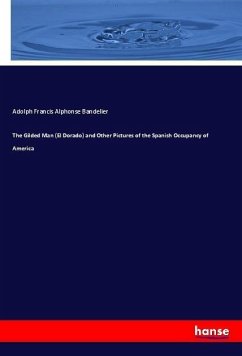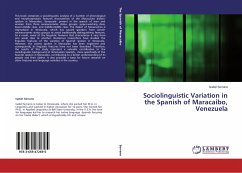
Sociolinguistic Variation in the Spanish of Maracaibo, Venezuela
Versandkostenfrei!
Versandfertig in 6-10 Tagen
47,99 €
inkl. MwSt.

PAYBACK Punkte
24 °P sammeln!
This book comprises a sociolinguistic analysis of a number of phonological and morphosyntactic features characteristic of the Maracucho dialect-spoken in Maracaibo, Venezuela- present in the speech of men and women from three socioeconomic status groups: upper-working class, lower-middle class, and middle-middle class. The dialect of Maracuchos is stigmatized in Venezuela, which has caused speakers from certain socioeconomic status groups to avoid traditionally distinguishing features. As a result, some of the linguistic features that characterize it vary from one social class to another. Nume...
This book comprises a sociolinguistic analysis of a number of phonological and morphosyntactic features characteristic of the Maracucho dialect-spoken in Maracaibo, Venezuela- present in the speech of men and women from three socioeconomic status groups: upper-working class, lower-middle class, and middle-middle class. The dialect of Maracuchos is stigmatized in Venezuela, which has caused speakers from certain socioeconomic status groups to avoid traditionally distinguishing features. As a result, some of the linguistic features that characterize it vary from one social class to another. Numerous researchers have studied the linguistic features of the varieties of Spanish spoken in Venezuela. However, the variety spoken in Maracaibo has been neglected and consequently, its linguistic features have not been described. Therefore, the results of this study represent a valuable contribution to the sociolinguistic background of Venezuelan Spanish,, more specifically of the Spanish spoken in Maracaibo, contributing to a better understanding of its people and their dialect. It also provides a basis for future research on other features and language varieties in the country.



